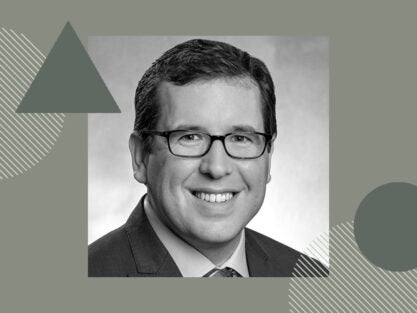February 15, 2023—Sean Kivlehan, assistant professor of Global Health and Population at Harvard T.H. Chan School of Public Health, is an emergency physician at Brigham and Women’s Hospital and director of the Lavine Family Humanitarian Studies Initiative and the Emergency Health Systems Program at the Harvard Humanitarian Initiative (HHI). He is currently involved in training Ukrainian frontline providers and civilians in trauma care and mass casualty management. Kivlehan spoke about the February 6 earthquake in Turkey and Syria, which so far has killed more than 35,000 people and left tens of thousands more injured and displaced.
Q: Is HHI providing any support in Turkey and Syria?
A: We are not directly deploying people to the area, but we are partnering with other organizations and providing expertise. HHI is actively involved with the World Health Organization’s health cluster as an academic partner. During crises, this organization coordinates the actions of responders from around the world. Two of our faculty members are also part of an non-governmental organization (NGO) called Team Rubicon, which is on the ground doing rapid assessments that will inform the WHOs response.
Q: In the aftermath of the earthquake, what are the biggest public health and humanitarian concerns?
A: After a disaster, rescuing survivors and treating traumatic injuries is the first priority. Then you need to address communicable diseases that spread easily among people sheltering in close quarters, such as respiratory or diarrheal infections. But what is almost invisible at first is the interruption to daily health services. We’ll see the effects later in upticks of vaccine preventable diseases and in the non-communicable diseases that turn into acute problems because care was interrupted.
This crisis is particularly complicated and catastrophic in northwest Syria, which has been experiencing a large-scale humanitarian crisis for over a decade. There were already several million people who were fully dependent on humanitarian aid—and only one border crossing that aid groups could use.
Shelter is a big concern right now in Syria. It’s cold, and there were already many displaced people. The health system—which was fragmented and inadequate before the earthquake—is going to be significantly affected. Many health care facilities sustained structural damage. There’s also concern around the workforce. You have the immediate interruption of work, disruption of education, and further worsening of “brain drain” as people relocate.
Turkey has obviously been affected too, but if there is any good news it’s that Turkey has a fairly strong emergency response infrastructure and health care system, and the ability to provide some level of resources. In the short term, I worry about everyone, but long term, I worry the most about the people in Syria who were already suffering.
I think we’re going to see the effects of this for a long time. Any progress that’s been made in northwest Syria in recent years is at risk of being wiped out. It’s beyond devastating.
Q: How should aid groups be working together to ensure a coordinated and effective long-term response?
A: Any organization providing aid should be engaged with the United Nations Office for the Coordination of Humanitarian Affairs (UN OCHA). They manage the cluster system to address urgent needs such as housing, water, sanitation, and access to food. Each cluster has a lead agency—for example, the WHO for health—which coordinates with numerous partners such as national and international NGOs, governments, other UN agencies, and militaries.
Over the years, I’ve learned that the best solutions to humanitarian crises are created with local partners and local input. Coordination is complicated and difficult, but it’s mandatory. We’re seeing this right now, with the negotiations that are needed between the UN, the Syrian government, and opposition groups around getting aid safely and securely to where it’s needed.
There have been a lot of improvements in coordinating humanitarian aid over the past 30 years, but there are still many challenges. I think that this this response is going to be a real test of the UN OCHA infrastructure. We’re going to see how it holds up and learn how we can continue to improve it as a humanitarian community.
Kivlehan recommends that people wishing to support relief efforts in the region donate to the U.N.’s Syria Cross-Border Humanitarian Fund, International Medical Corps, or Doctors Without Borders.
